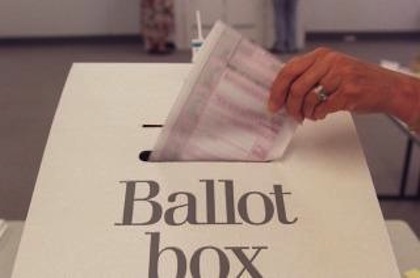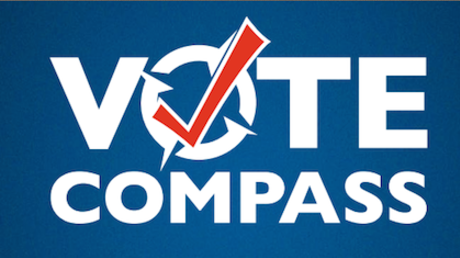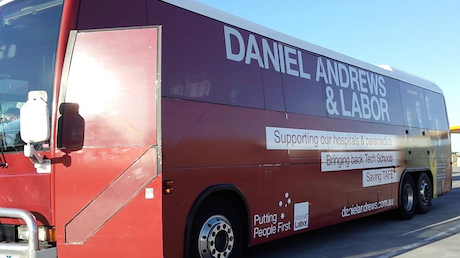
To paraphrase John Howard, if the Liberal-National Coalition Government wins the Victorian election on 29 November, it will be Lazarus with a quintuple bypass.
Ipsos’s first poll for The Age, published today (30 October), shows Labor leading the Coalition 56 per cent to 44 per cent on the two-party-preferred vote. While the election is almost certain to be closer than that, it is a huge lead. Moreover, in having Labor ahead, it is consistent with the trend in all the polls on Victorian voting intentions since June this year. Their sample of 1401 yields a sampling variance of about plus or minus 2.6 per cent.
The poll was conducted between 23 and 26 October, right in the middle of the first real campaigning week, where much of the focus was on education, a Labor strength.
The Greens' preferences are a large factor in Labor's strong position.
A Galaxy poll, published in the Herald Sun on 27 October, also had Labor ahead – by a more modest 52-48 per cent, exactly the same result as Galaxy produced in August.
Labor continues to be the beneficiary of a heavy preference flow from the Greens, who are polling a substantial 17 per cent of primary votes, according to Ipsos, and 13 per cent according to Galaxy. The Greens polled 11 per cent of the primary vote at the 2010 election, so they seem to have strengthened their position.
Just as well, from Labor’s point of view. Their primary vote is only 37 per cent, two percentage points behind the Coalition’s 39 per cent, and so the Greens’ preferences are a large factor in Labor’s strong position.
Ipsos asks specifically about the way minor-party voters intend to direct their preferences. They ask minor-party voters whether they will give a higher preference to Labor or the Liberal-National parties, and alternate the order in which the main parties’ names are offered. So the Ipsos two-party-preferred figure is not based on preference flows at the previous election, but on current voting intention data.
So far as possible, Ipsos have replicated the question designs used by the previous Fairfax pollster, AC Nielsen, so there is some continuity in trend data.
This holds true also for the preferred-premier and leadership approval questions.
Dr Napthine leads Mr Andrews 45 per cent to 36 per cent as preferred Premier, but that won’t do the Coalition any good if the majority vote Labor. Similarly, Galaxy has Dr Napthine leading Mr Andrews 43 per cent to 27 per cent as preferred Premier.
Both polls, however, show large proportions of voters are undecided on whom they prefer as Premier, Ipsos showing 15 per cent undecided and Galaxy a whopping 30 per cent.
So it is looking less like a presidential and more like a pedestrian-style campaign, and this is reflected in the leadership approval results from Ipsos. The net approval ratings are down for both of them, Dr Napthine’s by 11 points and Mr Andrews’ by 9 points.
But at least Dr Napthine’s approval score (47 per cent) is larger than his disapproval score (38 per cent), giving him a net positive 9, whereas Mr Andrews is in negative territory, his approval score (37 per cent) being lower than his disapproval score (42 per cent), giving him a net minus 5.
The Ipsos poll also included questions on which issues voters see as most important, and how they rate the parties on their ability to manage them. The top three issues for importance were health, education and jobs. On all three Labor was seen as the better party to manage them – and by big margins.
The Liberal-National parties were seen as better at economic management, law and order and roads, also by big margins, but these were of lesser importance to voters.
It may be, as Dr Napthine asserts, that voters have only just started to focus on the campaign and that as they pay more attention, his Government’s position will improve. It is just as likely, however, that they long ago made up their minds and have turned their attention to the Spring Carnival.
Dr Denis Muller is a senior research fellow in the Centre for Advancing Journalism at the University of Melbourne and one-time associate of Irving Saulwick in conducting the Saulwick Poll for The Age and The Sydney Morning Herald.




